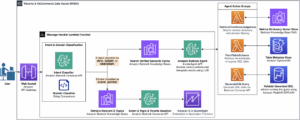In 2023, the European Union reached a historic record in granting residence permits to non-EU citizens, exceeding 3.7 million. This figure reflects a 4.7% increase compared to 2022, according to data published by Eurostat.
The main reason for issuing these permits continues to be employment, representing 33.8% (1.3 million) of the total, although it experienced a slight decrease of 0.4% compared to the previous year. On the other hand, permits granted for family reasons increased by 6.4%, reaching 986,453, while those for reasons related to international protection and similar reasons also grew by 5.3%, totaling 956,646 permits.
Without a doubt, the category that showed the greatest increase was education. Permits issued for educational reasons, representing 14.3% of the total, experienced a significant growth of 13.5%, totaling 534,558 permits.
In terms of nationalities, citizens of Ukraine topped the list with 307,313 residence permits issued, followed by Belarus with 281,279 and India with 207,966. For Ukrainians, employment was the main reason for obtaining the permit (71.7%), a pattern that is repeated in other prominent nationalities such as Belarus (52.3%) and India (45.2%).
In other cases, the reasons vary. Citizens of Syria and Afghanistan received permits predominantly for international protection reasons, with 77.3% and 85.1% respectively. On the other hand, family reasons prevailed for nationals of Morocco (50.3%), Russia (39.4%), and Brazil (35.3%). As for Chinese citizens, the majority of their permits were granted for educational reasons, representing 37.8%.
These data illustrate the diversity of reasons and the wide range of nationalities that are part of the migratory landscape in the European Union, highlighting the ongoing attraction of the bloc for professionals, students, and families from around the world.
via: MiMub in Spanish












